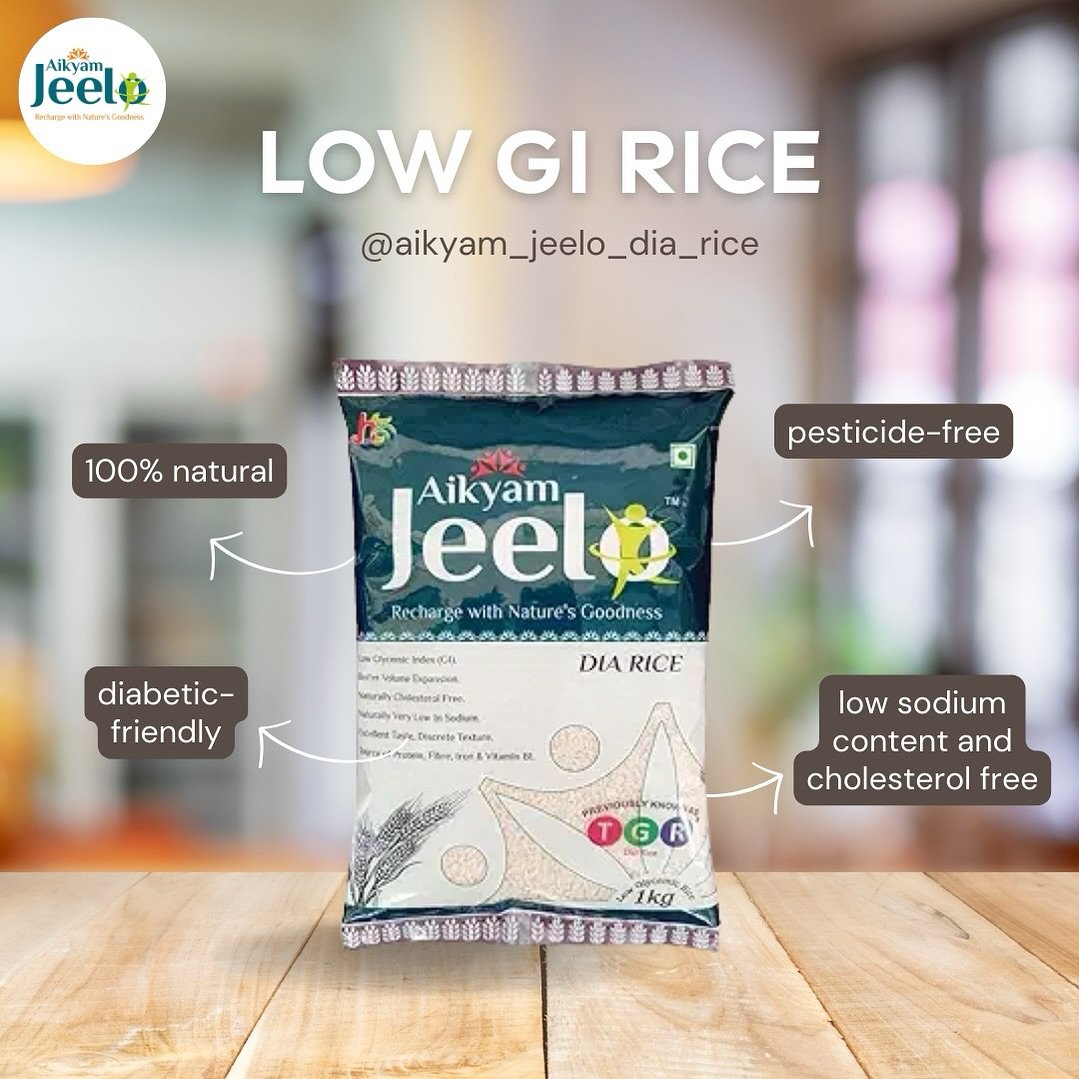
For many, rice is a comforting staple in their daily diet. However, for individuals with diabetes, its carbohydrate content and impact on blood sugar can be a concern. Does this mean rice is off-limits? Not entirely. Choosing the right type of rice and eating it in moderation can make a big difference. This article highlights diabetes-friendly rice varieties and practical ways to include rice in a balanced meal plan.
How Rice Impacts Blood Sugar Levels
Rice is rich in carbohydrates, making it important for diabetics to monitor their intake to prevent spikes in blood sugar. When consumed, carbohydrates break down into glucose, which enters the bloodstream. The speed of this process depends on the rice’s glycemic index (GI) and preparation method.
The glycemic index measures how quickly a food raises blood sugar levels. High-GI foods, like white rice, are rapidly absorbed, causing sharp blood sugar increases. In contrast, low-GI options such as brown or wild rice are digested more slowly, leading to steadier blood sugar levels.
Selecting rice with a lower GI and higher fiber content is essential for better blood sugar control.
Diabetes-Friendly Rice Varieties
Here are the best rice options for managing diabetes:
1. Brown Rice
Brown rice is a whole grain that retains its nutrient-rich bran and germ layers. It is high in fiber, which slows digestion and prevents rapid blood sugar spikes. Studies suggest replacing white rice with brown rice can improve blood sugar control. A small portion of brown rice, paired with a balanced meal, is a diabetes-friendly choice.
2. Wild Rice
Although technically a grass seed, wild rice is high in fiber and protein, making it an excellent choice for diabetics. Its low GI and nutrient content support stable blood sugar levels. Pairing wild rice with lean proteins and vegetables creates a nutritious, satisfying meal.
3. Black Rice
Also known as forbidden rice, black rice is rich in antioxidants, fiber, and essential nutrients. Its anthocyanin content supports insulin sensitivity and reduces inflammation. With its lower GI, black rice helps stabilize blood sugar when eaten in moderation.
4. Basmati Rice
Among white rice varieties, basmati rice has a lower GI, causing a slower rise in blood sugar. To enhance its benefits, pair basmati rice with fiber-rich foods like legumes or leafy greens. However, portion control is crucial.
5. Red Rice
Red rice is a whole grain with a vibrant color and high fiber content. Like brown and black rice, it retains its bran layer, aiding blood sugar management. Including red rice in meals provides a flavorful and nutritious alternative to white rice.
Tips for Including Rice in a Diabetes-Friendly Diet
Choosing the right rice is just part of the solution. How you prepare and pair it can significantly impact blood sugar levels. Consider these tips:
- Stick to Small Portions: Limit rice to 1/3 to 1/2 cup per meal to prevent excess carbohydrate intake.
- Choose Whole-Grain Varieties: Opt for brown, black, or red rice instead of refined white rice for better fiber content and slower digestion.
- Pair with Protein and Vegetables: Combine rice with protein-rich foods and fiber-packed vegetables to balance blood sugar levels.
- Cook and Cool Rice: Cooling rice after cooking and reheating it increases resistant starch, which has a lesser effect on blood sugar.
- Explore Substitutes: Try alternatives like quinoa, barley, or cauliflower rice for lower carbohydrate options.
Can White Rice Be Included in a Diabetic Diet?
White rice is a refined grain with a high GI, making it less suitable for regular consumption by diabetics. However, occasional small portions can be included if paired with fiber-rich vegetables and lean proteins. For daily meals, healthier alternatives like brown or wild rice are better options.
Conclusion
For managing diabetes, whole-grain rice varieties such as brown, wild, black, and red rice are the best choices. These types are lower on the glycemic index, higher in fiber, and packed with essential nutrients that support stable blood sugar levels. If white rice is preferred, basmati rice is a slightly better option, but moderation is key.
By selecting the right rice, controlling portion sizes, and pairing rice with balanced meals, diabetics can enjoy this staple food without compromising their health. Mindful eating and moderation remain essential for incorporating rice into a diabetes-friendly diet.
Comments are closed